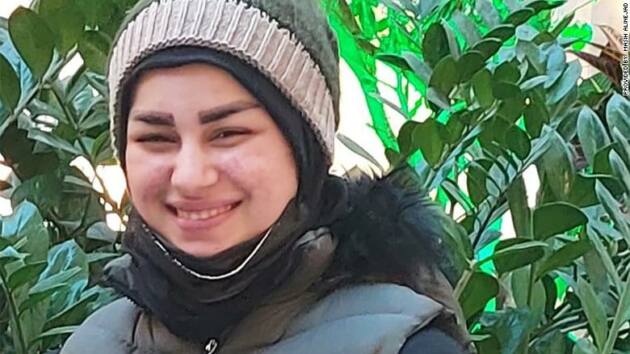Iranians have recently been shocked by the news of two “honor killings” of women, including one woman believed to have been killed for her faith in Christ. Iranian Christian Omeed Jouyandé discusses these brutal crimes and explains how Iran’s laws reinforce the discrimination that can underly them. He also shows how the Christian satellite ministry SAT-7 PARS offers an alternative in the Christian message of freedom.
If ever a term might be described as contradictory it has to be “honor killing.” Where is the honor in killing another human being, much less a member of your own family?Cases in the News
Twenty-year-old Iman Sami was murdered, it is suspected, by her brother and uncle for turning to Christ. She was discovered after she posted to her private Tik Tok account a video of her singing praise songs. She is one among thousands slaughtered for the sake of family “honor.” Most victims of honor killings are women, and these murders can often go unreported.
The appalling case of Ghazal Heydari, recently beheaded by her husband and brother-in-law in southern Iran, has received much attention due to the brutality of the crime. People were shaken by pictures and videos of a young man smiling and parading his wife’s head in the southwestern city of Ahwaz.
READ: Iranian Christians sentenced under brutal new law
Ghazal Heydari was a 12-year-old child when she was married to her husband. At age 17, she escaped to Turkey because of the domestic violence to which she had been subjected. She was convinced by her father to return to Iran, where in February 2022 her life was brutally taken by her husband and brother-in-law.
The response of the authorities in Iran to this honor killing has been to shut down the Rokna news agency, which originally broadcast the news of the crime. They have also said that they will pursue the people who took and broadcast videos of Mr. Heydari walking around with his wife’s head.
Legal Discrimination of Women
The attitude of the authorities can be understood in the light of the much broader discrimination against women in Iranian law. Honor killings are an extreme application of this law, which has a much broader impact on the day-to-day lives of women.
Sally Momtazi, a presenter of the Insiders program on SAT-7 PARS, which is watched by both women and men in Iran, cites one example: “Article 1108 [of Iran’s civil law] confirms that if a woman withholds her duties towards her husband she does not qualify to receive financial support, and she has to be sexually obedient to her husband, and in the absence of reasons compliant with sharia law she cannot prevent her husband’s advances.”
These laws and the extent to which they are enforced impact Iranian women in surprising ways. For example, it is quite well known that a woman may not leave home and enter public spaces without the right kind of clothing. What may be less well known is that women are prohibited even from cycling or riding motorcycles.
Insiders co-presenter Hengameh explains, “Riding a bicycle is considered so mundane around the world, and yet in Iran it has become an activity filled with tension and challenge, to the extent that women riding bicycles or motorcycles are subject to criminal proceedings.”
Changing Attitudes
And yet there is evidence that at the grassroots, attitudes are changing. Despite the recent rise in honor killings, there is a large-scale turning away from the kind of beliefs that fuel these crimes, and Iranians in growing numbers are adopting a different view of the place and role of women in society.
Parsa*, a male viewer from Iran, writes, “In my opinion, women must have the benefit of equal rights in society – I would by no means prevent my sister or wife from riding a bike. And we must not forget the standing of each person in creation if we believe in a God who had created us with a plan.”
“Under Iran’s law, the life of a female human being is worth half that of a male human being,” writes Touraj*, a Christian viewer from Iran. “While these injustices and inhumane laws exist, no one will have equal human rights, whether boy or girl, man or woman, old or young. Injustice must be completely uprooted – merely cutting the branches will not change the nature or the bitter fruit of the tree.”
The Insiders program promotes the empowerment of women by providing a platform for the discussion of topics like these, which are widely treated as taboo in Persian culture. Recently, it has focused on human rights, showing viewers how the New Testament testifies to the freedom in Christ given to people made in God’s image and loved by Him: “There is neither Jew nor Greek, neither slave nor free, nor is there male and female, for you are all one in Christ Jesus” (Galatians 3:28, NIV).
Note
More than 400 Iranian women are victims of honor killings each year, usually at the hands of close family members. The Lancet medical journal reported in October 2020 that at least 8,000 such killings had been reported in Iran between 2010 and 2014. According to Dr. Rezvan Moghadam, founder of the Iranian organization Stop Honor Killings, the number of victims is greater than reported, as in some cases women were driven to suicide or the cause of death was reported as illness rather than murder.
* Names changed for security reasons.
–By Omeed Jouyandé
SAT-7 Communications Officer | Omeed became a Christian from an atheist background in the 1980s. He was born in Iran and in his teens moved to the UK where he lives with his wife, two children, and three guinea pigs. He has worked in the volunteer sector in communications and development. His interests include writing, music, and cycling.
For more information about the ministry of Sat-7, visit their website.









